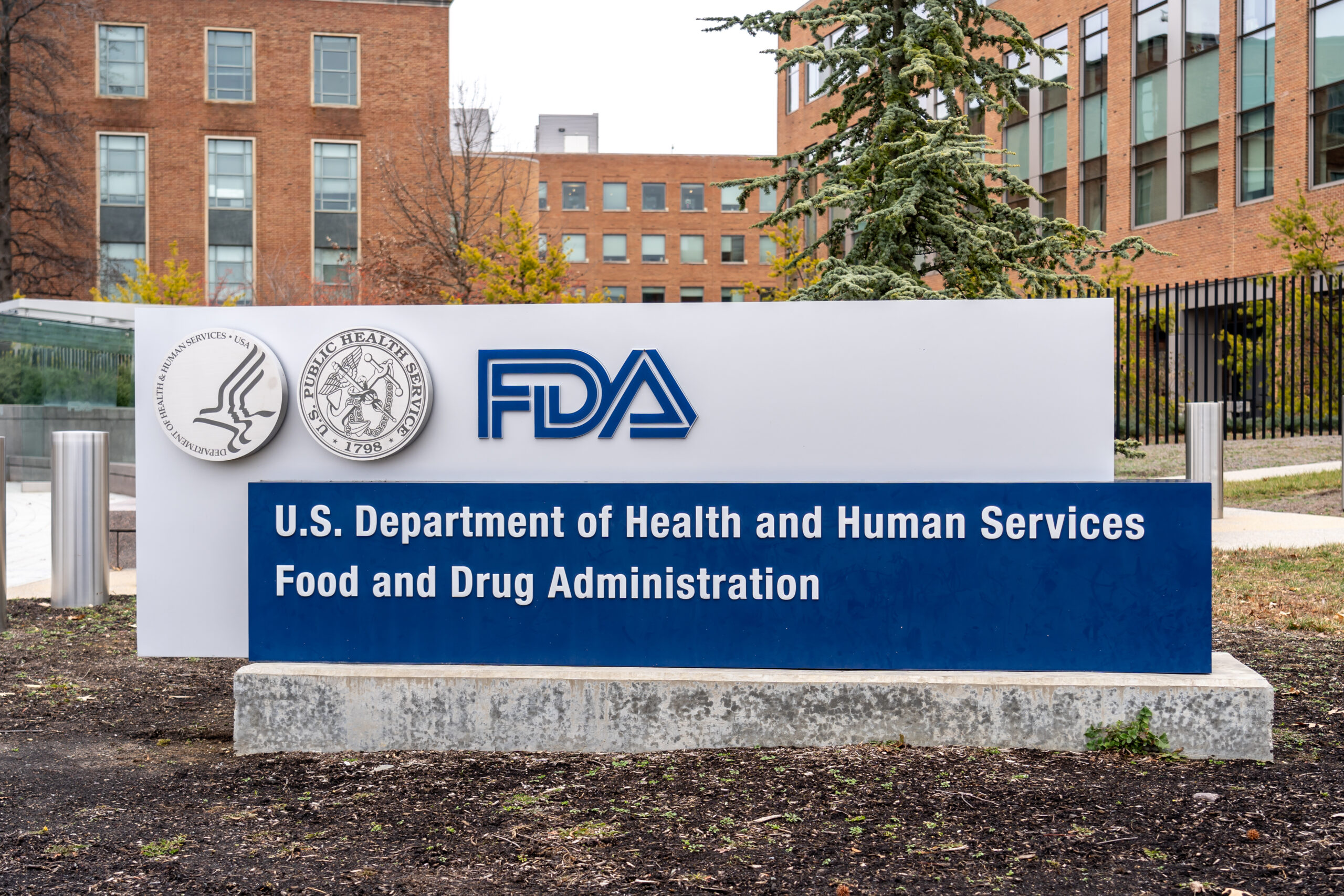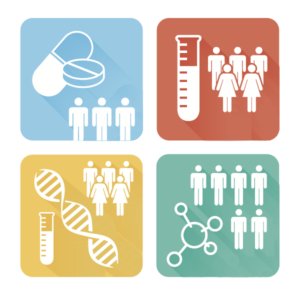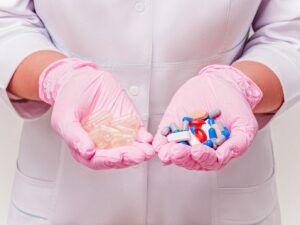FDA Guidance on Conduct of Clinical Trials During COVID-19 Pandemic

The US Food and Drug Administration (FDA) on Wednesday issued new guidance to ensure the safety of volunteers in medical trials during the global COVID-19 pandemic. The guidance issued will help sponsors maintain compliance with good clinical practice and further minimize risks to trial integrity during the pandemic.
“We want to support the continuance of these clinical trials in compliance with good clinical practice and minimizing risks to trial integrity, while also safeguarding the health and well-being of study participants,” the FDA’s deputy commissioner for medical and scientific affairs, Anand Shah, said in an agency statement.
BioPharma Services has previously donated its state-of-the-art Phase 1 clinical infrastructure and expert team of scientific and medical personnel for coronavirus COVID-19 vaccine research and treatments. Our company continues to support and implement measures to safeguard volunteer and community health.
Introduction
The Food and Drug Administration (FDA) plays a critical role in protecting the United States from threats including emerging infectious diseases, including the Coronavirus Disease 2019 (COVID-19) pandemic. FDA is committed to providing timely guidance to support continuity and response efforts to this pandemic.
FDA is issuing this guidance to provide general considerations to assist sponsors in assuring the safety of trial participants, maintaining compliance with good clinical practice (GCP), and minimizing risks to trial integrity during the COVID-19 pandemic.
Given this public health emergency, this guidance is being implemented without prior public comment because the FDA has determined that prior public participation for this guidance is not feasible or appropriate (see section 701(h)(1)(C)(i) of the Federal Food, Drug, and Cosmetic Act (FD&C Act) and 21 CFR 10.115(g)(2)). This guidance document is being implemented immediately, but it remains subject to comment in accordance with the Agency’s good guidance practices.
In general, FDA’s guidance documents, including this guidance, do not establish legally enforceable responsibilities. Instead, guidances describe the Agency’s current thinking on a topic and should be viewed only as recommendations, unless specific regulatory or statutory requirements are cited. The use of the word should in Agency guidance means that something is suggested or recommended, but not required.
Background
There is currently an outbreak of respiratory disease caused by a novel coronavirus that was first detected in Wuhan City, Hubei Province, China, and that has now been detected in many locations internationally, including cases in the United States. The virus has been named “SARSCoV-2” and the disease it causes has been named “Coronavirus Disease 2019” (COVID-19). On January 31, 2020, the Department of Health and Human Services (HHS) issued a declaration of a public health emergency related to COVID-19 and mobilized the Operating Divisions of HHS.1 In addition, on March 13, 2020, the President declared a national emergency in response to COVID-19.
FDA recognizes that the COVID-19 pandemic may impact the conduct of clinical trials of medical products. Challenges may arise, for example, from quarantines, site closures, travel limitations, interruptions to the supply chain for the investigational product, or other considerations if site personnel or trial subjects become infected with COVID-19. These challenges may lead to difficulties in meeting protocol-specified procedures, including administering or using the investigational product or adhering to protocol-mandated visits and laboratory/diagnostic testing. FDA recognizes that protocol modifications may be required, and that there may be unavoidable protocol deviations due to COVID-19 illness and/or COVID-19 control measures. Although the necessity for, and impact of, COVID-19 control measures on trials will vary depending on many factors, including the nature of disease under study, the trial design, and in what region(s) the study is being conducted, FDA outlines the following general considerations to assist sponsors in assuring the safety of trial participants, maintaining compliance with good clinical practice (GCP), and minimizing risks to trial integrity.
Discussion
Considerations for ongoing trials:
- Ensuring the safety of trial participants is paramount. Sponsors should consider each circumstance, focusing on the potential impact on the safety of trial participants, and modify study conduct accordingly. Study decisions may include those regarding continuing trial recruitment, continuing use of the investigational product for patients already participating in the trial, and the need to change patient monitoring during the trial. In all cases, it is critical that trial participants are kept informed of changes to the study and monitoring plans that could impact them.
- Sponsors, in consultation with clinical investigators and Institutional Review Boards (IRBs)/Independent Ethics Committees (IECs), may determine that the protection of a participant’s safety, welfare, and rights is best served by continuing a study participant in the trial as per the protocol or by discontinuing the administration or use of the investigational product or even participation in the trial. Such decisions will depend on specific circumstances, including the nature of the investigational product, the ability to conduct appropriate safety monitoring, the potential impact on the investigational product supply chain, and the nature of the disease under study in the trial.
- Since trial participants may not be able to come to the investigational site for protocol-specified visits, sponsors should evaluate whether alternative methods for safety assessments (e.g., phone contact, virtual visit, alternative location for assessment, including local labs or imaging centers) could be implemented when necessary and feasible, and would be sufficient to assure the safety of trial participants. Sponsors should determine if in-person visits are necessary to fully assure the safety of trial participants (for example to carry out procedures necessary to assess safety or the safe use of the investigational product appropriately); in making the decision to continue use or administration of the investigational product, the sponsor should consider whether the safety of trial participants can be assured with the implementation of the altered monitoring approach.
- In some cases, trial participants who no longer have access to investigational product or the investigational site may need additional safety monitoring (e.g. withdrawal of an active investigational treatment).
- The need to put new processes in place or to modify existing processes will vary by the protocol and local situation. For example, this assessment could include consideration of whether it is appropriate to delay some assessments for ongoing trials, or, if the study cannot be properly conducted under the existing protocol, whether to stop ongoing recruitment, or even withdraw trial participants.
- COVID-19 screening procedures that may be mandated by the health care system in which a clinical trial is being conducted do not need to be reported as an amendment to the protocol even if done during clinical study visits unless the sponsor is incorporating the data collected as part of a new research objective.
- Changes in a protocol are typically not implemented before review and approval by the IRB/IEC, and in some cases, by FDA. Sponsors and clinical investigators are encouraged to engage with IRBs/IEC as early as possible when urgent or emergent changes to the protocol or informed consent are anticipated as a result of COVID-19. Such changes to the protocol or investigational plan to minimize or eliminate immediate hazards or to protect the life and well-being of research participants (e.g., to limit exposure to COVID-19) may be implemented without IRB approval or before filing an amendment to the IND or IDE, but are required to be reported afterwards. FDA encourages sponsors and investigators to work with their IRBs to prospectively define procedures to prioritize reporting of deviations that may impact the safety of trial participants.
- The implementation of alternative processes should be consistent with the protocol to the extent possible, and sponsors and clinical investigators should document the reason for any contingency measures implemented. Sponsors and clinical investigators should document how restrictions related to COVID-19 led to the changes in study conduct and duration of those changes and indicate which trial participants were impacted and how those trial participants were impacted.
- Changes in study visit schedules, missed visits, or patient discontinuations may lead to missing information (e.g., for protocol-specified procedures). It will be important to capture specific information in the case report form that explains the basis of the missing data, including the relationship to COVID-19 for missing protocol-specified information (e.g., from missed study visits or study discontinuations due to COVID-19). This information, summarized in the clinical study report, will be helpful to the sponsor and FDA.
- If scheduled visits at clinical sites will be significantly impacted, certain investigational products, such as those that are typically distributed for self-administration, may be amenable to alternative secure delivery methods. For other investigational products that are normally administered in a health care setting, consulting FDA review divisions on plans for alternative administration (e.g., home nursing or alternative sites by trained but non-study personnel) is recommended. In all cases, existing regulatory requirements for maintaining investigational product accountability remain and should be addressed and documented.
- With respect to efficacy assessments, FDA recommends consultation with the appropriate review division regarding protocol modifications for the collection of efficacy endpoints, such as use of virtual assessments, delays in assessments, and alternative collection of research-specific specimens, if feasible. For individual instances where efficacy endpoints are not collected, the reasons for failing to obtain the efficacy assessment should be documented (e.g., identifying the specific limitation imposed by COVID-19 leading to the inability to perform the protocol-specified assessment).
- If changes in the protocol will lead to amending data management and/or statistical analysis plans, the sponsor should consider doing so in consultation with the applicable FDA review division. Prior to locking the database, sponsors should address in the statistical analysis plan how protocol deviations related to COVID-19 will be handled for the prespecified analyses.
- If planned on-site monitoring visits are no longer possible, sponsors should consider optimizing use of central and remote monitoring programs to maintain oversight of clinical sites.
B. In general, and if policies and procedures are not already in place for applicable trials:
- Sponsors, clinical investigators, and IRBs should consider establishing and implementing policy and procedures, or revise existing policy and procedures, to describe approaches to be used to protect trial participants and manage study conduct during possible disruption of the study as a result of COVID-19 control measures at study sites. Changes to policy and procedures could address, but not be limited to, impact on the informed consent process, study visits and procedures, data collection, study monitoring, adverse event reporting, and changes in investigator(s), site staff, and/or monitor(s) secondary to travel restrictions, quarantine measures, or COVID-19 illness itself. Policy and procedures should be compliant with applicable (regional or national) policy for the management and control of COVID-19. Depending upon the nature of the changes described above, a protocol amendment may be required under the applicable regulations.
C. For all trials that are impacted by the COVID-19 pandemic:
Sponsors should describe in appropriate sections of the clinical study report (or in a separate study-specific document):
- Contingency measures implemented to manage study conduct during disruption of the study as a result of COVID-19 control measures.
- A listing of all participants affected by the COVID-19 related study disruption by unique subject number identifier and by investigational site, and a description of how the individual’s participation was altered.
- Analyses and corresponding discussions that address the impact of implemented contingency measures (e.g., trial participant discontinuation from investigational product and/or study, alternative procedures used to collect critical safety and/or efficacy data) on the safety and efficacy results reported for the study.
Robust efforts by sponsors, investigators, and IRBs/IECs to maintain the safety of trial participants and study data integrity are expected, and such efforts should be documented. As stated above, FDA recognizes that protocol modifications may be required, including unavoidable protocol deviations due to COVID-19 illness and/or COVID-19 control measures. Efforts to minimize impacts on trial integrity, and to document the reasons for protocol deviations, will be important.
Additional Resources
For further questions on clinical trial conduct during the COVID 19 pandemic, please email
Clinicaltrialconduct-COVID19@fda.hhs.gov
Click Here To Access The Official Release
Popular Posts
-
What are early phase clinical trials?
Clinical Trials are divided into 4 phases. Phase 1 and 2 trials constitute early phase trials, Phase 3 and 4 research studies are late-phase trials.
The primary objective of Phase 1 studies is to determine the correct drug dosage by evaluating drug safety and determining if there are any side effects. Phase 1 trials are conducted in healthy volunteers.
Phase 2 studies also study the safety of a drug but focus on evaluating its effectiveness. These studies can be conducted in healthy volunteers or in individuals who have a certain disease or condition.
-
What is a clinical trial?
A Clinical trial is a process which is performed to determine whether an investigational drug, device or therapy is safe and effective. In early phase research (i.e. Phases 1 and 2), the safety and effectiveness of the drug will be evaluated in healthy volunteers.
-
What is an investigational drug?
An investigational drug can also be called an experimental drug and is being studied to see if your disease or medical condition improves while taking it. Scientists are trying to prove in clinical trials:
- If the drug is safe and effective.
- How the drug might be used in that disease.
- How much of the drug is needed.
- Information about the potential benefits and risks of taking the drug.
-
Why do you need to take blood draws and how many blood draws will be required?
In order to evaluate the drug profile, we need to understand its pharmacokinetics. This is essentially how the body reacts to a drug after its administration through the mechanisms of absorption, distribution, as well as the metabolic changes. Therefore, blood draws are collected at various time points to better understand this mechanism. Each study requires a specific number of blood draws and total blood volume. These values will be provided to you and clearly stipulated in the informed consent form (ICF). The amount of blood that will be taken is outlined in the ICF.
-
Should I expect to experience any side-effects while doing studies?
As every study is testing an investigational product, there may be side effects. You will be provided with a list of side effects that have been reported in previous trials (if any), so you can make an informed decision whether or not to participate in the trial. During the trial you will be required to immediately inform clinic study staff of any adverse effects that you are experiencing. These side effects usually resolve upon discontinuation of the study drug.
-
Will I be compensated for doing a clinical study?
Volunteers are compensated and the amount varies depending on the length of the clinical trial, length of stay and number of follow-up visits. The compensation is not specifically related to the risks or type of drug involved in the trials or studies. Every study is different and therefore, the compensation will vary. Study volunteers may receive between $1000 to $4000 for a trial (based on the factors listed above).
-
Are food and accommodation provided over the course of the trial?
Food – Clinical trials are conducted in a controlled setting which means that all food is provided and trial volunteers receive standardised meals. Individual meal plans or meal preferences cannot be provided. If you have any food allergies or hypersensitivity to food product(s) that are clinically significant or life-threatening you may not be able to participate in a trial. Please contact us to discuss any food issues.
Accommodation – During your in-clinic stay you will share sleeping areas with other volunteers who are of the same gender. Similar to a hospital setting, supervision will be provided to ensure that your health and safety are being monitored.
-
What is the length of a study and do I have to complete all the visits?
Details of the duration of a study can be found on the Volunteer Hub.
-
What is informed consent and how is it carried out?
Before you decide whether or not to take part in a clinical research study, you will be required to read and understand the information provided in an Informed Consent Form (ICF). The ICF describes the clinical research study and the nature of the investigational product to be used, including:
- Your rights and responsibilities as a study participant.
- What you will be asked to do during study participation.
- The potential risks that you should be aware of.
During this process, you will have the opportunity to discuss and ask questions related to the conduct of the clinical research study with the study doctor/ study staff. You are under no obligation to participate and your decision to take part in a clinical trial is voluntary.
-
Can I bring my own device?
Yes, we encourage you to bring items that will help to pass the time while you are in the clinic. You can use the time to study or work or catch up on the movies you’ve been meaning to watch.
-
What do I need to pack?
Wondering what to pack before your site visit? Visit our Packing List page to learn more.
-
When do I receive compensation for taking part in a study?
You will receive compensation as outlined during the Informed Consent process. Typically, you will receive compensation once all study visits have been completed. If, for any reason, you do not complete all study visits, your compensation will be on a pro-rated basis (i.e. for the time that you have participated in the trial)
-
Where will I sleep during the clinical study?
We provide a clean, safe socially distance sleeping environment, in a dormitory of hotel room style. Watch video
-
Can I bring my own food?
All aspects of clinical trials are closely monitored including the food and drink consumed by participants. While you are in the clinic, you will be provided with all meals as per the study guidelines. You will need to eat all the food provided to ensure the guidelines are met. Watch video
-
Privacy
We respect and value the privacy of our volunteers. View our Privacy and Cookie Policy here.



